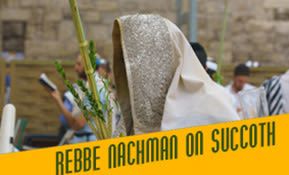
Respect, How Far?
For me it was an unforgettable lesson in how far one must go to avoid even the slightest possibility of hurting someone’s feelings – no matter who..

I remember something that happened to me when I was fifteen years old, when I used to study with the Gaon, Rabbi Meir Chaim of Slonim, known as Reb Motel the Dayan. He was an old man at the time and he would sit in his private study all day long and much of the night. Because his eyes were weak from age and he could barely see, yeshivah students would come to his room and read to him from a whole array of subjects: Mishnah, Gemara, Shulchan Aruch, and Rambam. First he would listen attentively, and then he would add his own comments and insights, drawing on his vast knowledge of Torah. The breadth of his knowledge and the sharpness of his insights astounded everyone. This is how he spent his days and nights, immersed in his love of Torah.
I used to learn Mishnayot with him every afternoon, during the break between my morning and afternoon sessions in the yeshivah. Once, when I entered his room, I found him talking with another rabbi, and they both began to laugh. I sat down to learn, but before he would let me start, he apologized to me. He said that he hoped I hadn’t been offended by the laughter, since it had begun at the moment when I entered the room. He felt he had to explain what had been so funny, so I shouldn’t think they were making fun of me.
“I recently gave a chair to a carpenter to fix,” he explained, “and he returned it to me this morning. Just before you came in, the carpenter passed by my door again. I told him that the chair had already broken again in exactly the same place. If it had lasted for a week or two, that would also have been unacceptable, but to break after a few hours! The carpenter’s answer was: ‘It’s not my fault; you must have sat on it!’ That’s why we were laughing – not because of you.”
I was amazed by the way he spoke to me. Reb Motel was a holy man, one of the most highly respected individuals in the Holy City of Jerusalem. In a city that was famous for its scholars and students, he had served as a judge for many years. His brilliance and his devotion to the Torah were legendary. I was just a poor boy from the Old City and Reb Motel didn’t even know my family. I was young enough to be his great-grandson. Yet he felt he had to apologize to me, just in case I might have been offended. For me it was an unforgettable lesson in how far one must go to avoid even the slightest possibility of hurting someone’s feelings – no matter who that person might be.
Perfecting One’s Character in the Service of God
Unfortunately, the path of self-perfection is largely ignored in our time. When most people speak of avodat HaShem, they mean prayer, or Torah study, or mitzvot. Few realize how much God desires the efforts of an individual to improve his character, and how essential such efforts are in avodat Hashem. The Rambam lists a number of transgressions for which most people never do teshuvah because they fail to recognize them as sins – and most of those sins are the result of bad character traits (Mishnah Torah, Hilchos Teshuvah 4:4).
Pirkei Avot begins with the words: “Moshe (Moses) received the Torah from Sinai, and gave it to Yehoshua (Joshua), and Yehoshua gave it to the Elders, and the Elders to the prophets (Pirkei Avot 1:1). In his commentary on Mishnayot, Rav Ovadiah Bartenura asks the following question: Since this Mishnah teaches a fundamental lesson about the transmission of the Torah, why wasn’t it placed at the beginning of all the Mishnayot, as an introduction to the entire Oral Torah? Why does it appear at the beginning of Pirkei Avot, which is primarily a guide to self-improvement? He answers that it was put there to teach that the path of self-improvement, the obligation to perfect our character, is also from Sinai – that the need to overcome and eliminate our negative traits is a commandment in the Torah. We are obligated to perfect our character in every area of life, and not merely in the example we gave at the beginning of the chapter – repaying good for evil.
We have to pay careful attention to the way we act throughout the day. Are we being impatient with our family and friends? Are we getting upset over small monetary losses? Think of how we overreact when someone – a neighbor in the building or a fellow employee at work – tries to avoid paying his share of an assessed, communal fee. Though we can justify ourselves a million times over, our words and actions result in anger, hatred and lashon hara – and it’s often over pennies. And even if it involves larger sums, we should remember that we often spend as much on gifts – so why not view this as another gift? By acquiescing in such situations, we will spare ourselves much aggravation and we will avoid very serious sins. Neither the money nor the principle is worth the damage that often results from such disputes.
A Rare Form of Tzedakah
I remember an incident that happened when I was young and we were living in a communal courtyard in the Old City of Jerusalem. A fight broke out between some of the neighbors about who should pay for some minor damage – it was a just a clogged drainpipe. The fighting went on for weeks and weeks, with each person blaming the other. Accusations and slanders were hurled and the atmosphere was filled with anger and resentment until finally they succeeded in working out an agreement. But when the plumber came to fix the pipe, he demanded a price that was much higher than expected, and the whole battle started up again. My father wasn’t responsible at all for that section of the courtyard, but he immediately understood that things were about to get much worse, so he quietly made a private deal with the plumber. He told the plumber to announce a price that the neighbors would accept, and then my father would pay him the difference out of his own pocket. The neighbors were satisfied, the plumber started working, and at long last, peace was restored.
I believe this was a wonderful example of tzedakah. We usually think of tzedakah in terms of giving money to the poor. But to give money in order to save an entire courtyard of families from pain, frustration, and countless sins involving lashon hara, anger, and hatred is also an important form of tzedakah – even though most people fail to recognize such an opportunity when it arises. In the midst of a quarrel, it is very easy to forget that a small concession can be a very great mitzvah.
(Excerpt from The Scent of Gan Eden, by Rabbi Yaakov Meir Shechter, Keren Ohr Publications. Used with author’s permission.)













Tell us what you think!
Thank you for your comment!
It will be published after approval by the Editor.